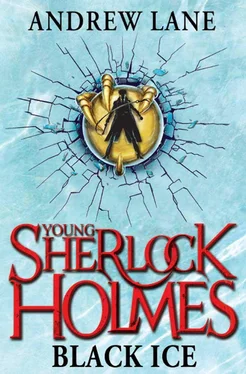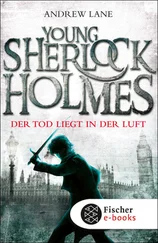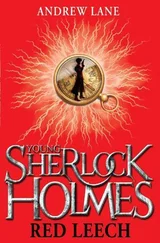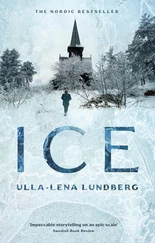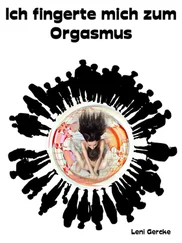Andrew Lane - Black Ice
Здесь есть возможность читать онлайн «Andrew Lane - Black Ice» весь текст электронной книги совершенно бесплатно (целиком полную версию без сокращений). В некоторых случаях можно слушать аудио, скачать через торрент в формате fb2 и присутствует краткое содержание. Жанр: Исторический детектив, на английском языке. Описание произведения, (предисловие) а так же отзывы посетителей доступны на портале библиотеки ЛибКат.
- Название:Black Ice
- Автор:
- Жанр:
- Год:неизвестен
- ISBN:нет данных
- Рейтинг книги:3 / 5. Голосов: 1
-
Избранное:Добавить в избранное
- Отзывы:
-
Ваша оценка:
- 60
- 1
- 2
- 3
- 4
- 5
Black Ice: краткое содержание, описание и аннотация
Предлагаем к чтению аннотацию, описание, краткое содержание или предисловие (зависит от того, что написал сам автор книги «Black Ice»). Если вы не нашли необходимую информацию о книге — напишите в комментариях, мы постараемся отыскать её.
Black Ice — читать онлайн бесплатно полную книгу (весь текст) целиком
Ниже представлен текст книги, разбитый по страницам. Система сохранения места последней прочитанной страницы, позволяет с удобством читать онлайн бесплатно книгу «Black Ice», без необходимости каждый раз заново искать на чём Вы остановились. Поставьте закладку, и сможете в любой момент перейти на страницу, на которой закончили чтение.
Интервал:
Закладка:
The clanging of the door behind him made him flinch. He hated to think what the sound did to Mycroft.
‘Where now?’ he asked as they emerged into the fresh air of Covent Garden.
‘You to Chancery Lane, which is in that direction.’ Crowe waved a hand vaguely. ‘Me to -’ he checked the card, ‘Glassblowers’ Road, Chelsea. We will meet later.’
He turned and strode off without a backwards glance, leaving Sherlock to stare after him uneasily. He was alone in London – again. He couldn’t help remembering what had happened last time.
Eventually he turned away and started to walk in the direction Crowe had indicated. He passed taverns and shops, market stalls and people standing on street corners with trays of goods. And people – all kinds of people, from toffs in fine clothes to urchins in rags. London was indeed a melting pot for all humanity.
He was about to ask someone the way to Chancery Lane when he noticed a sign on the side of a road he was passing. He turned in. It was a more salubrious area than the one he’d passed through: judging by the brass plates on the buildings it was comprised mainly of firms of solicitors, augmented by the occasional doctor’s practice.
After five minutes or so he came across the first printer’s shop. The location made sense to him now: the solicitors and barristers in the area would no doubt have need of a lot of printing services. Nervously he pushed the door open.
The smell inside was an intensified version of what he had smelt on the card: dry musty and sharp. What he hadn’t counted on was the noise. The clatter of several printing presses in the back of the shop made it almost impossible to hear his own voice when he said: ‘Excuse me!’
A man turned to look at Sherlock. He was in shirtsleeves, but he wore a bowler hat. His moustache was luxuriant, covering not only his mouth but most of his chin as well.
‘No jobs ’ere,’ he said. ‘Got all the printer’s devils I need. Shove off!’
‘I need to ask a question,’ Sherlock said.
The man stared suspiciously. ‘What?’
Sherlock passed the calling card across. ‘Did you print this?’
He examined it critically. ‘No. Now shove off.’
Sherlock backed away as the man turned back to his work. If each of the printers was that rude then he’d be finished within a few minutes, and at a loss to know what to do until he had to meet up with Amyus Crowe again.
The second printer was friendlier. This time Sherlock could see into the back of his shop, where metal drums covered in tiny metal letters were being rotated by boys younger than him, who were pushing all of their weight against great metal handles. The drums were pressed against long ribbons of paper that were pulled past them, leaving inked letters on the paper. The boys were covered in patches of ink as well, marking their skin in black and white.
He asked the same question, profferred the same card, but despite the fact that the printer smiled and tried to be helpful, he hadn’t printed the card either.
Sherlock struck gold with the third printer.
This man was tall and thin, with whiskers that hung like ribbons down his gaunt cheeks. Looking at him, and remembering what Amyus Crowe had told him on the train about each man bearing the marks of his profession, Sherlock began to see the typical marks of a printer: the ink ingrained under the fingernails and in the creases in the fingers, the ridges along the fingertips left by years of prising metal type out of the printers, the long, straight cuts along the palms of the hands left by the ribbons of paper as the rollers whisked them past. All the marks were there for the person who wanted to see.
‘Oh yes,’ the man said, nodding. ‘I remember this. Odd request. Normally people want four, five hundred cards, cos they’re for leaving behind, right? I mean, you don’t show someone your card and then take it back, do you? But this cove just wanted the one. Handed me a scrap of paper with the details written on it.’ He shrugged. ‘So I set the machine up and just printed the one card. Told him he could have a hundred for just a shilling more, but he said no.’ He thought for a moment. ‘Actually, he didn’t say no – he went outside to talk to some other cove and then he came back and said no.’
‘This other man – can you describe him?’
‘Funny old thing,’ the printer said, ‘but I recognized him. He didn’t recognize me. Nobody recognizes the people who serve them.’
‘I do,’ Sherlock promised. ‘I will.’
‘Then you’re a better man than the rest. No, I used to work in a printer’s down Drury Lane way, before I got this place. Used to do a lot of work for the theatres: programmes, playbills, posters – you know the kind of thing. This bloke – the one who was outside – used to come in sometimes. He was associated with one of the taverns along there. Worked as a bouncer – throwing out people who were too drunk or too poor to pay, or those who started fights. The Shaftesbury, I think it was. We used to print up menus and posters and suchlike for them.’
‘Can you describe him?’ Sherlock asked, holding his breath.
The printer shrugged. ‘Small, like a whippet. Hair was long and stringy. Black beard. Wore a fuzzy coat. Asktrakhan, I think they call ’em. Don’t remember his name.’
‘Thanks,’ Sherlock said. ‘If I ever need a printer, I’ll remember you.’
He left, triumphant. He checked his watch: still an hour and a half before he had to meet Amyus Crowe. Time enough to check out the Shaftesbury Tavern perhaps? That way, at least he could tell Crowe not only that he’d identified the man who had hired the dead man, but that he’d tracked him down as well.
He asked a passing woman where Drury Lane was, and then headed off in that direction. It only took him ten minutes.
Drury Lane was lined with theatres and taverns. Some of the theatres were obviously music halls, showing numerous variety acts like jugglers and singers and escape artists. Some were more high-class, offering performances of classic plays. A few were playing host to musical recitals, and Sherlock found himself nostalgic for his violin playing when he saw that a woman named Wilma Norman-Neruda (a female violinist!) was playing at one of the theatres.
He found the Shaftesbury Tavern halfway down. It was next door to a theatre which was advertising a comic opera by F. C. Burnand and A. Sullivan called Cox and Box. It didn’t sound appealing.
Sherlock sat on a doorstep outside a tavern across the road, and settled down to wait. He slumped sideways, and rested his head against the door frame, to make it look as if he was asleep, but he was watching out all the time for a small man with long stringy hair.
It was probably three-quarters of an hour later that a man fitting the description he’d been given left the Shaftesbury by the front door. He was dressed exactly as the printer had described him. He glanced up and down the street, then set off to his right.
Sherlock followed. Maybe the man would lead Sherlock to where he lived. That would be something to give to Amyus Crowe!
The man led Sherlock down Drury Lane, across a place called Seven Dials and then down towards Trafalgar Square. Sherlock was beginning to recognize bits of London now, and he was busy committing as much as he could to memory. The man turned left when he got to Trafalgar Square, walking past the ornate brown frontage of Charing Cross Station and the Charing Cross Hotel. He walked fast, and Sherlock had to hurry to keep up.
At Aldwych he turned right, and Sherlock realized he was heading over the Thames, across Waterloo Bridge. He stopped at a booth at the end of the bridge and handed over some coins. Sherlock debated quickly with himself: should he follow, or should he just go back to see Amyus Crowe? But what was he going to tell Crowe? That he’d found the man and then lost him again? No, he had to go on – at least to the other side of the bridge to see which way the man went.
Читать дальшеИнтервал:
Закладка:
Похожие книги на «Black Ice»
Представляем Вашему вниманию похожие книги на «Black Ice» списком для выбора. Мы отобрали схожую по названию и смыслу литературу в надежде предоставить читателям больше вариантов отыскать новые, интересные, ещё непрочитанные произведения.
Обсуждение, отзывы о книге «Black Ice» и просто собственные мнения читателей. Оставьте ваши комментарии, напишите, что Вы думаете о произведении, его смысле или главных героях. Укажите что конкретно понравилось, а что нет, и почему Вы так считаете.
